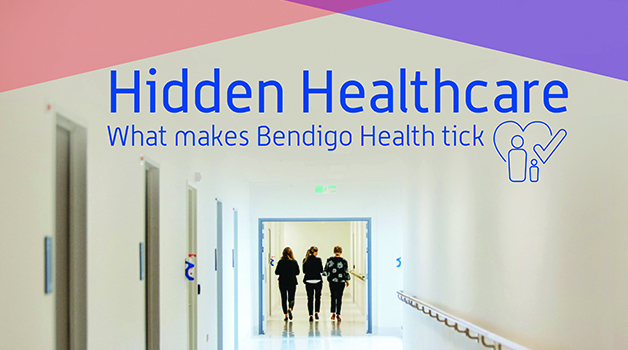 Sei Sei (front) and Moo Wah began as interpreters at Bendigo Health last month in response to increased demand for interpreting services from the Karen community.
Sei Sei (front) and Moo Wah began as interpreters at Bendigo Health last month in response to increased demand for interpreting services from the Karen community.
Sei Sei moved to Bendigo from a refugee camp in Thailand in 2009, not knowing a word of English.
After 12 months of living with a host family, she began volunteering as a Karen interpreter, and last month began working as an interpreter at Bendigo Health.
“Generally Asians speak a number of dialects, for me it was Burmese, Thai and a few others which made it easier for me to learn English as I’ve got experience learning other languages,” she said.
Sei Sei’s role is more complex than relaying information, she’s a conduit between the growing Karen community in Bendigo and the city’s public health service.
“As an interpreter my role is quite important because I know Karen people really well I can inform staff what is acceptable, what isn’t and what is the best way to help and support them in a culturally appropriate way,” she said.
Since the mid-2000s the Karen population has grown from one family to 2500 people and the most recent census in 2016 found Karen was the second most commonly-spoken language in Bendigo.
Despite the growing population, there’s a reticence among some to use the local healthcare system.
Bendigo Health is in the preliminary stages of a maternity study to assess the cultural birthing preferences of Karen people.
Sei Sei said there were a number of differences between Western and South-East Asian birthing and childcare practices, for example Karen people co-sleep with their babies and don’t use cots.
“It’s about providing information about using cots, or how to co-sleep safely, so the Karen people have a choice about how they want to do things. Even information on the food you need to eat to get certain vitamins during and after pregnancy is important because we have different diets,” she said.
Sei Sei is one of two interpreters employed by Bendigo Health.
Her colleague Moo Wah began his working life as a teacher in a refugee camp, and ventured into community development in Australia before working as an interpreter.
Moo Wah believes the lack of access to medicine in the refugee camps meant a lot of the Karen community had underlying medical conditions.
“Some (Karen people) will never come to hospital, that’s just the way they are, but if we can provide that link, comfort and remove that language barrier then more people will access the service,” he said.
“The Karen community needs a good interpreting service so people understand what’s going on with their health.”
Before hiring Moo Wah and Sei Sei Bendigo Health’s averaged about 300 interpreter service bookings a month, 170 of which were Karen. Other interpreter requests were Auslan, Dari, Dinka and Mandarin.
Moo Wah and Sei Sei work across all areas of Bendigo Health, from inpatient wards to outpatient clinics and do a reminder call to Karen patients before appointments to ensure none are missed.

For more in our Hidden Healthcare series, click the link below.
Hidden Healthcare